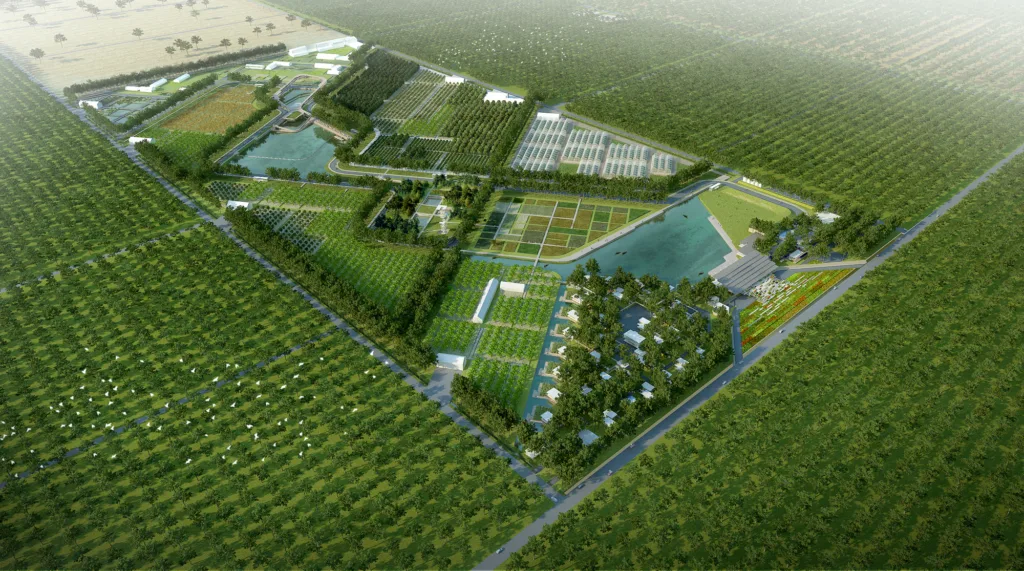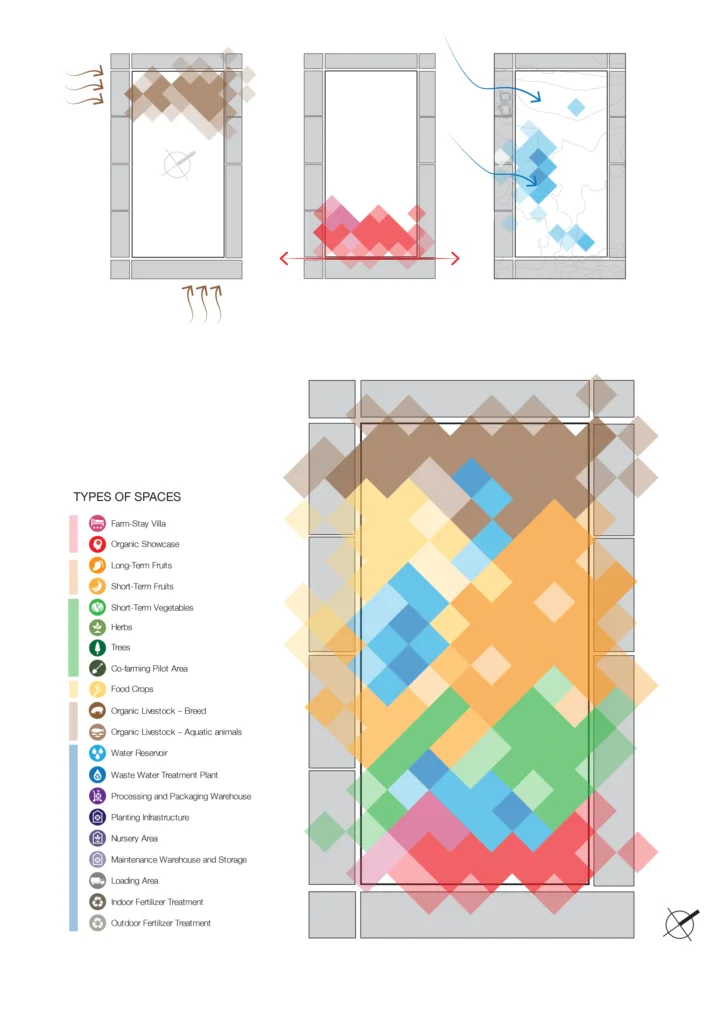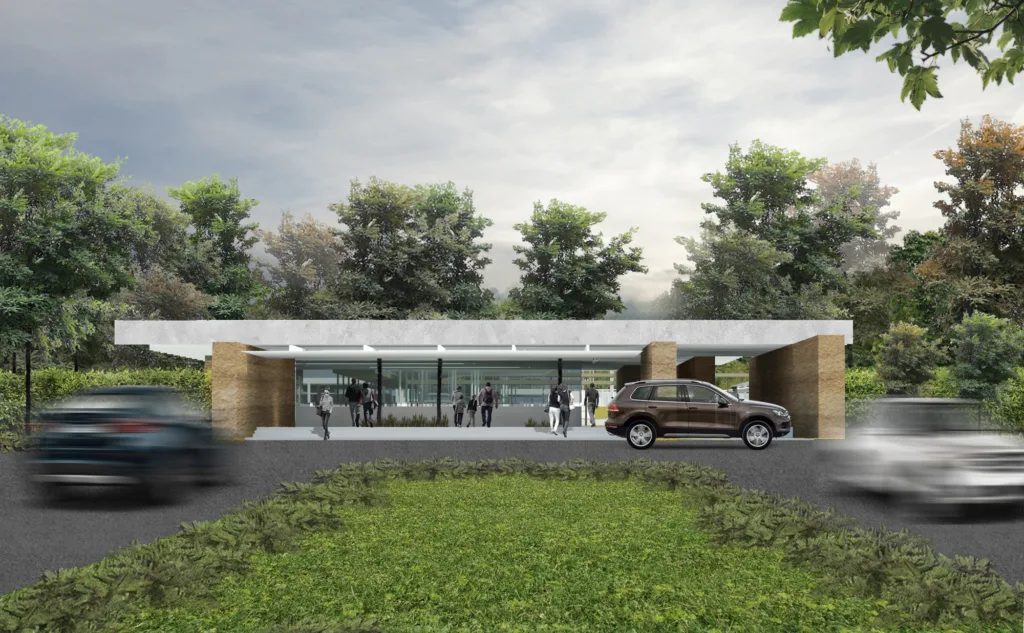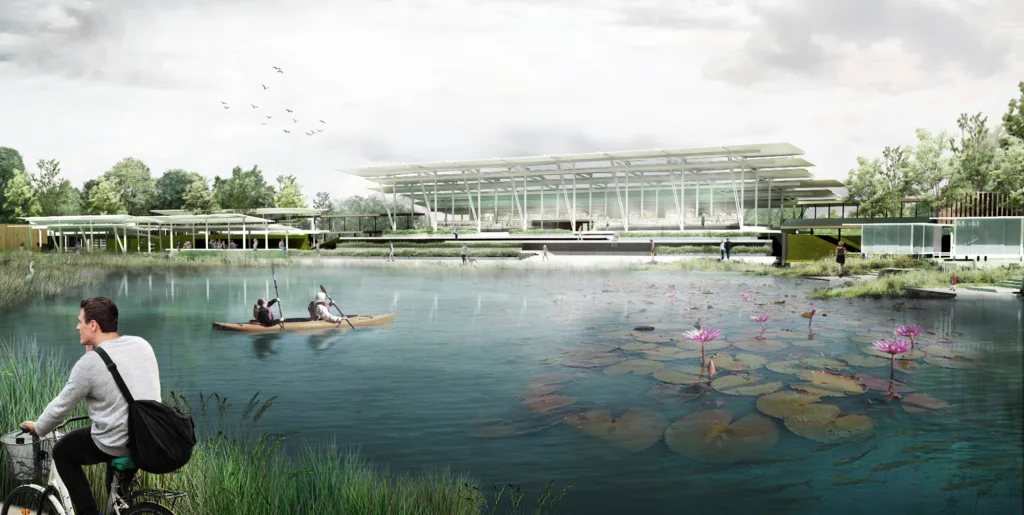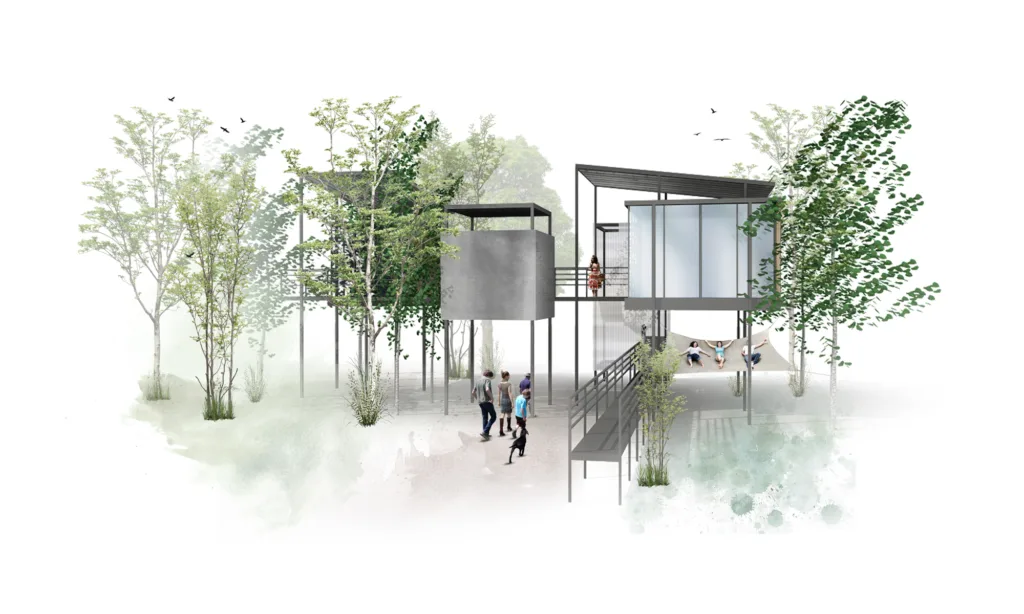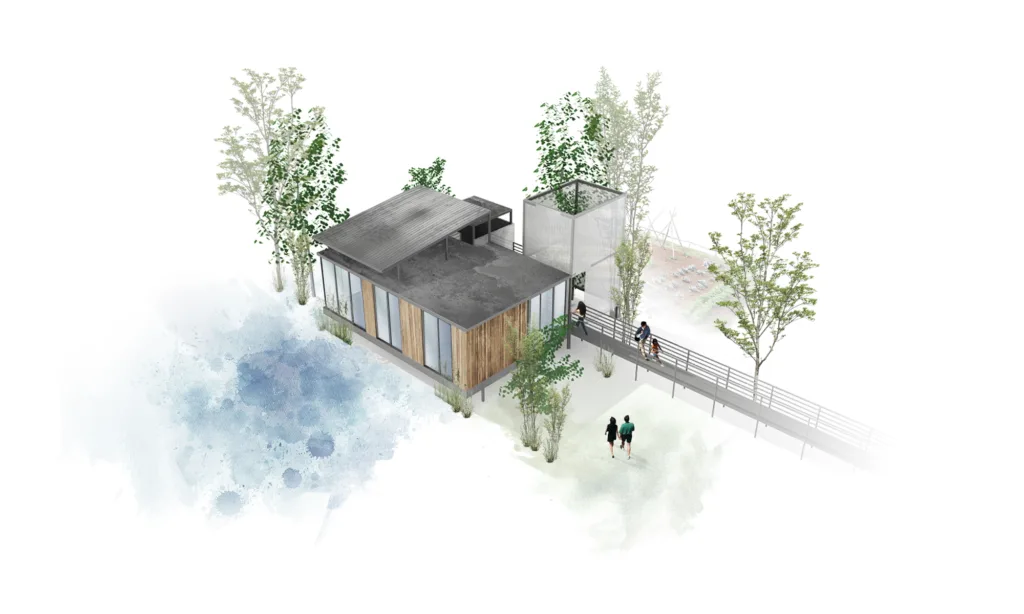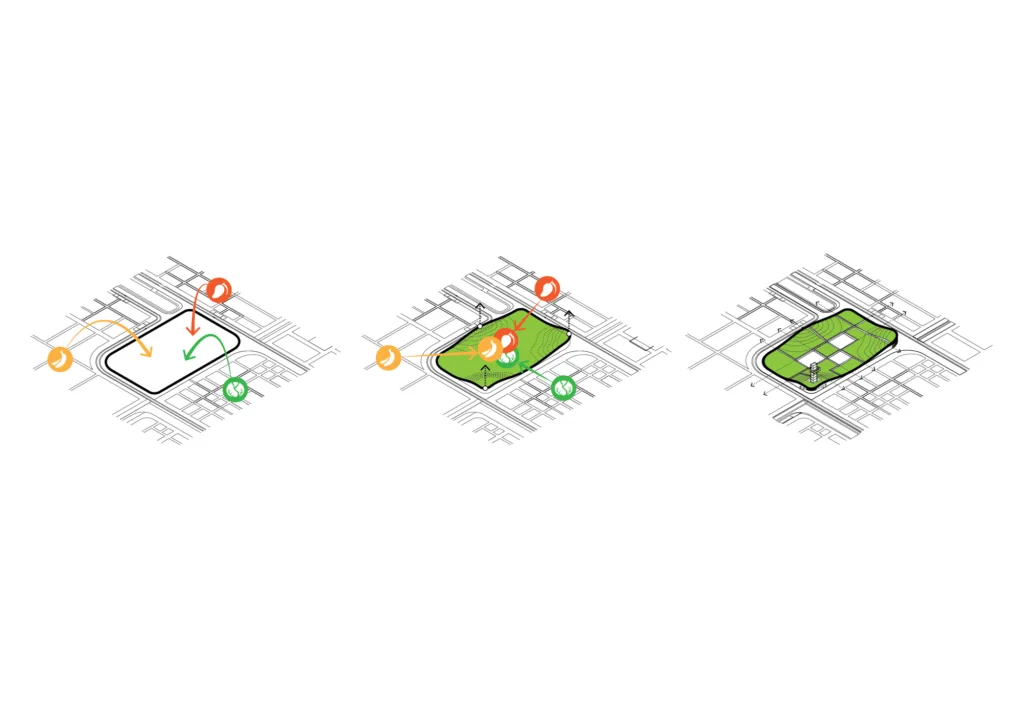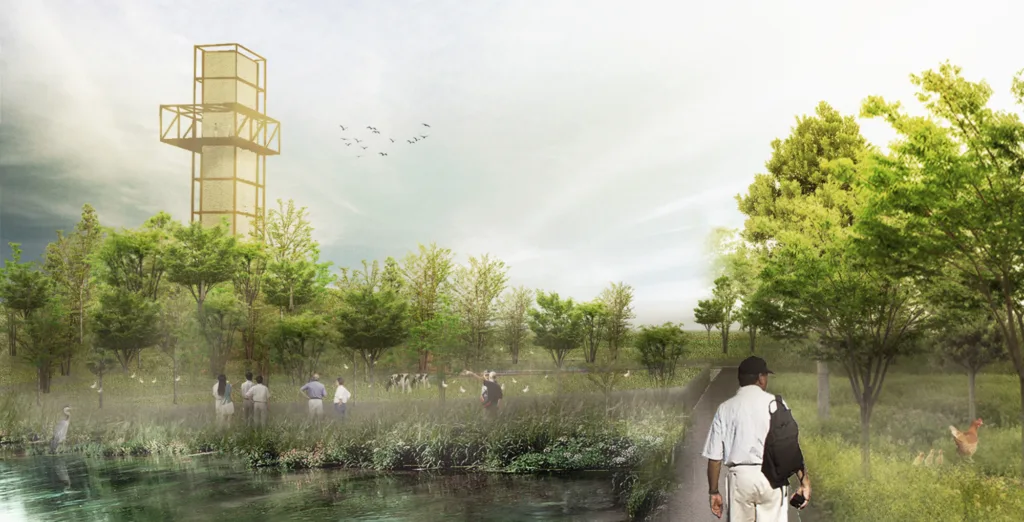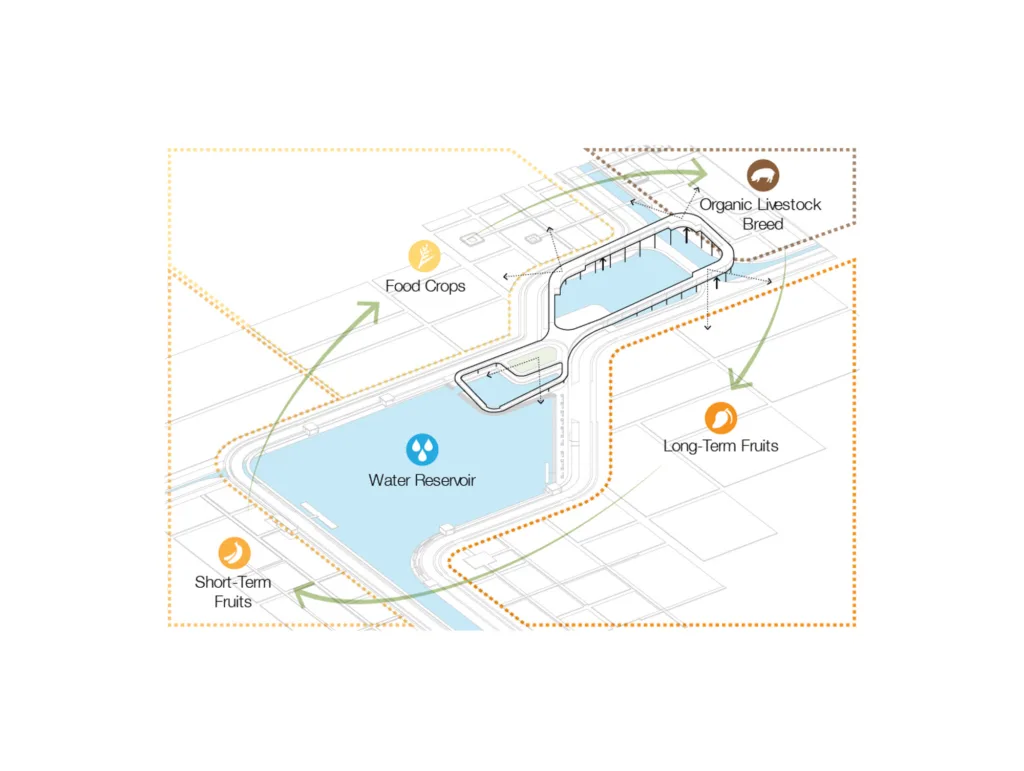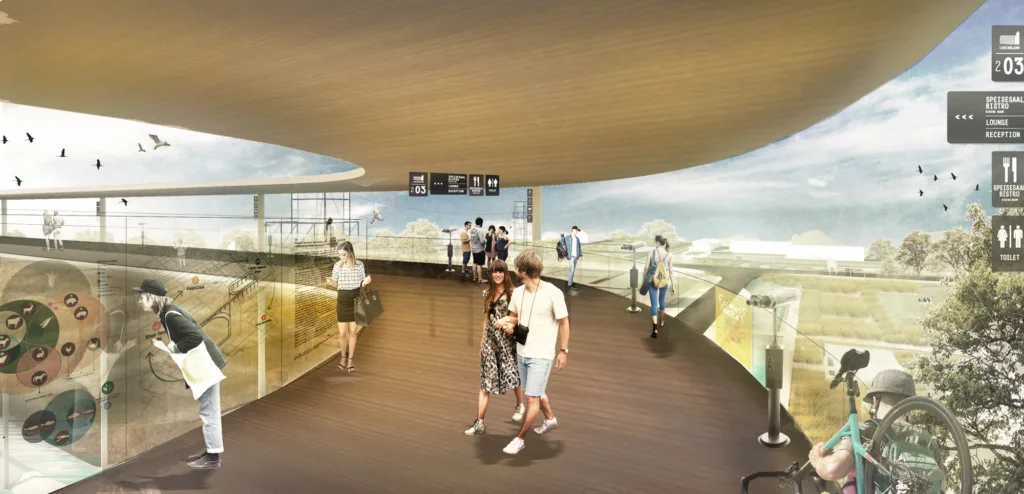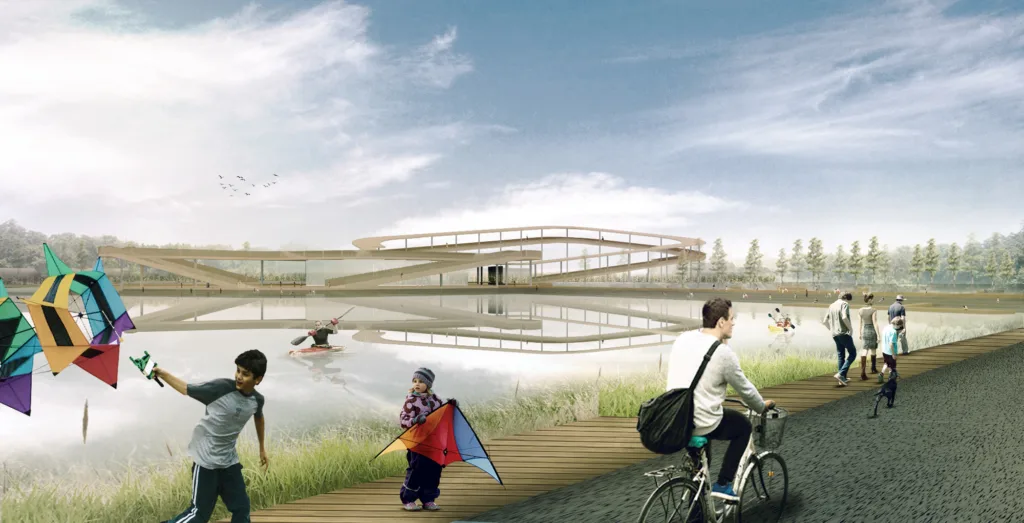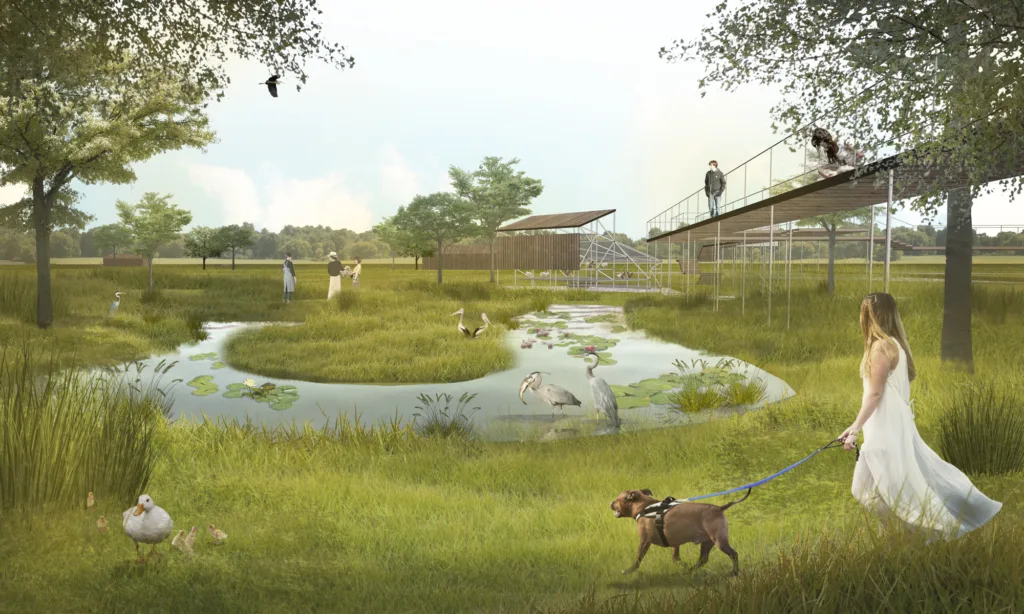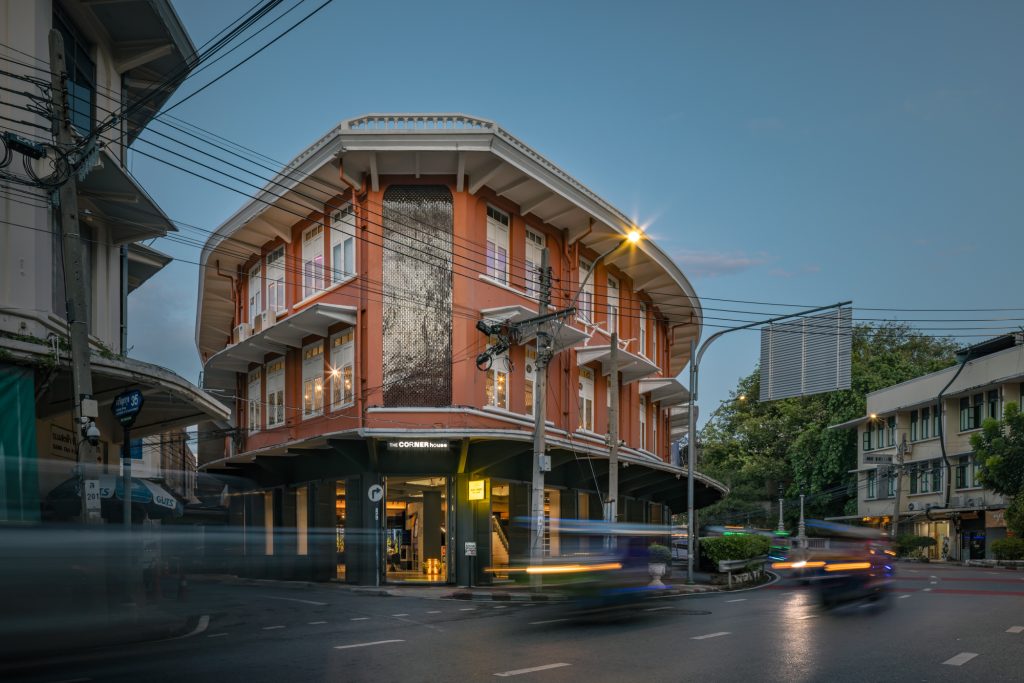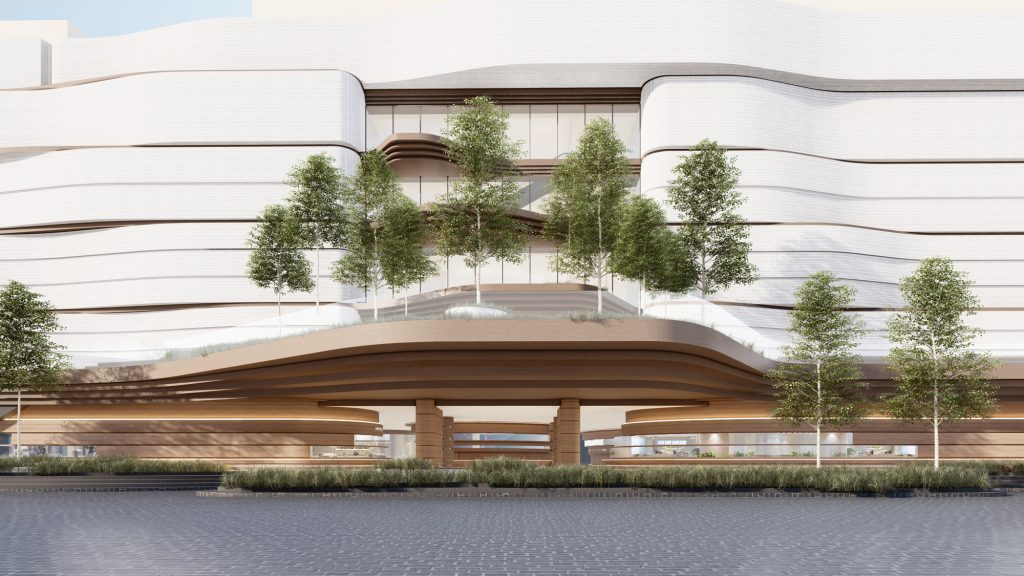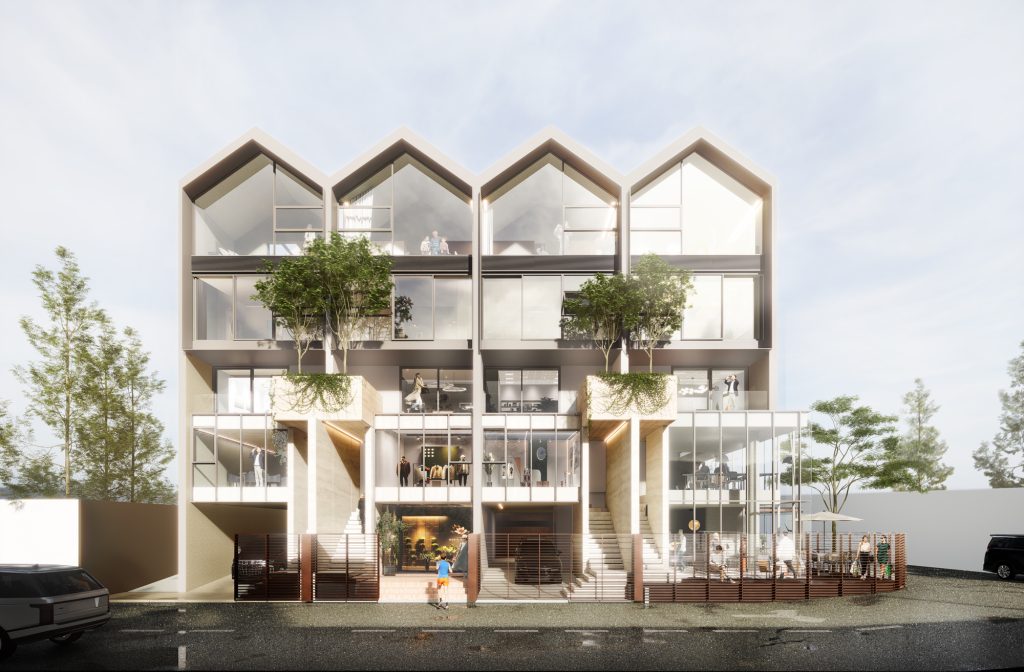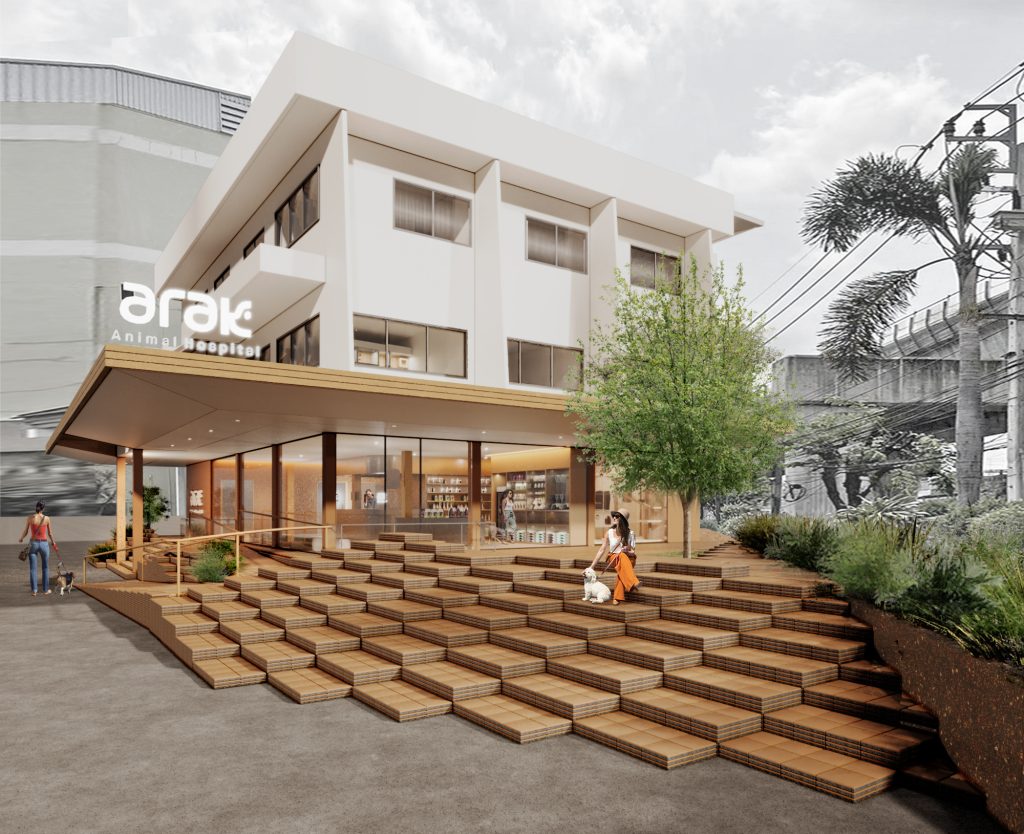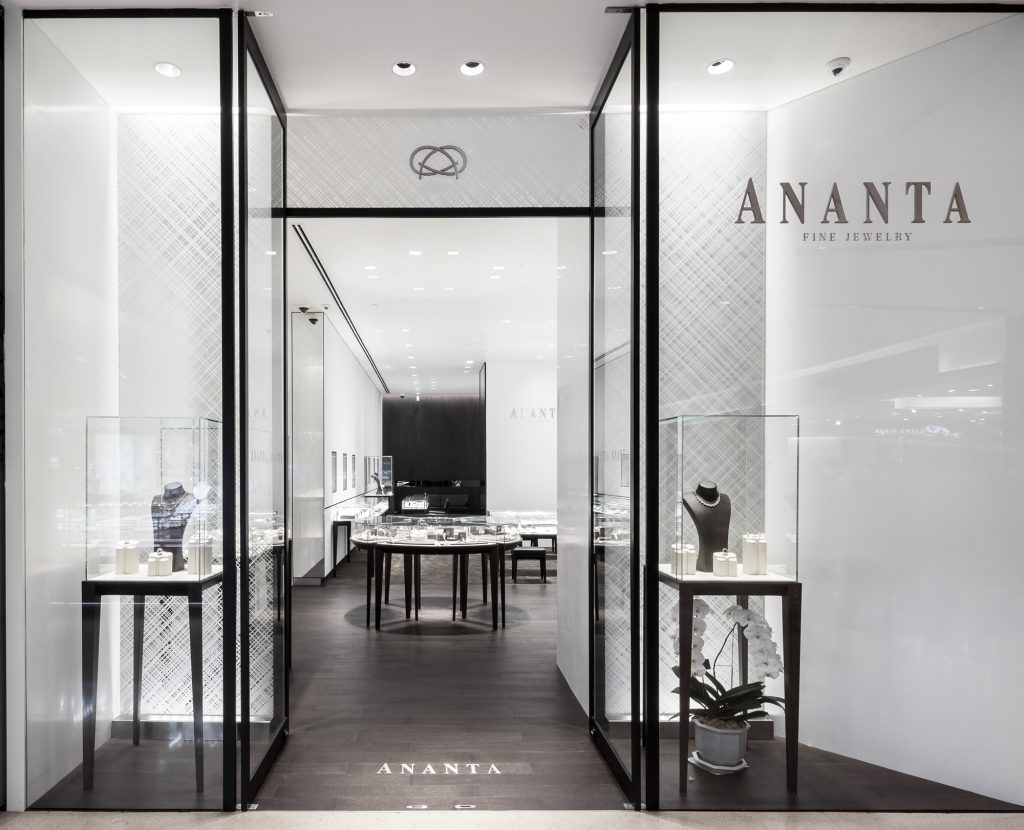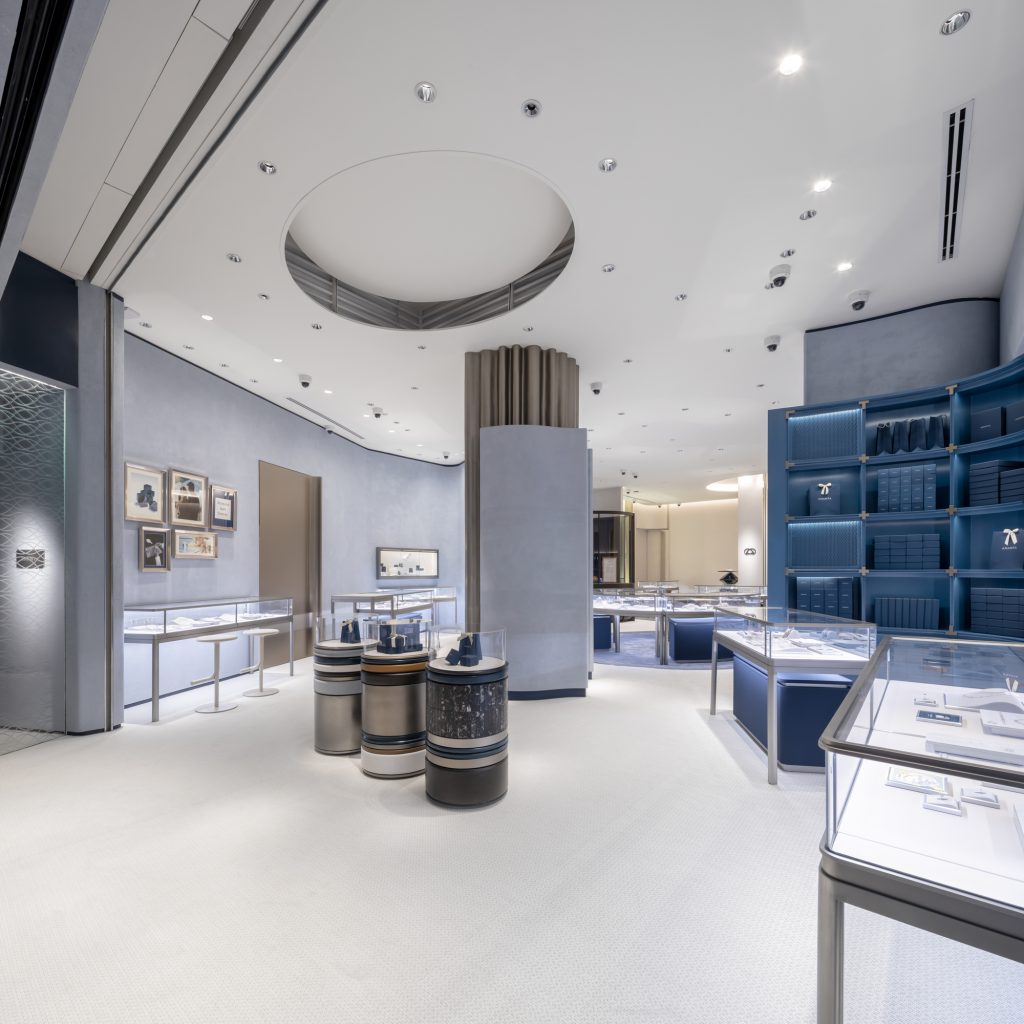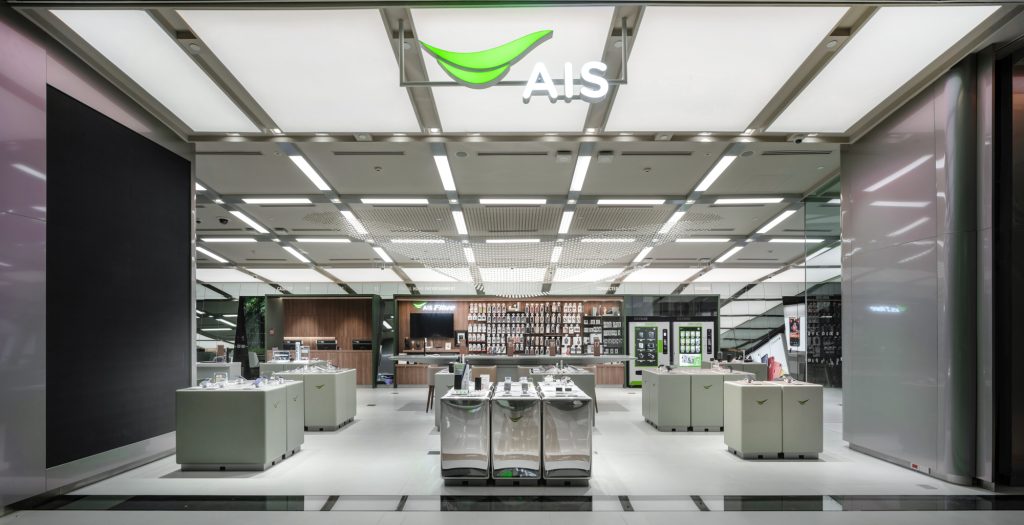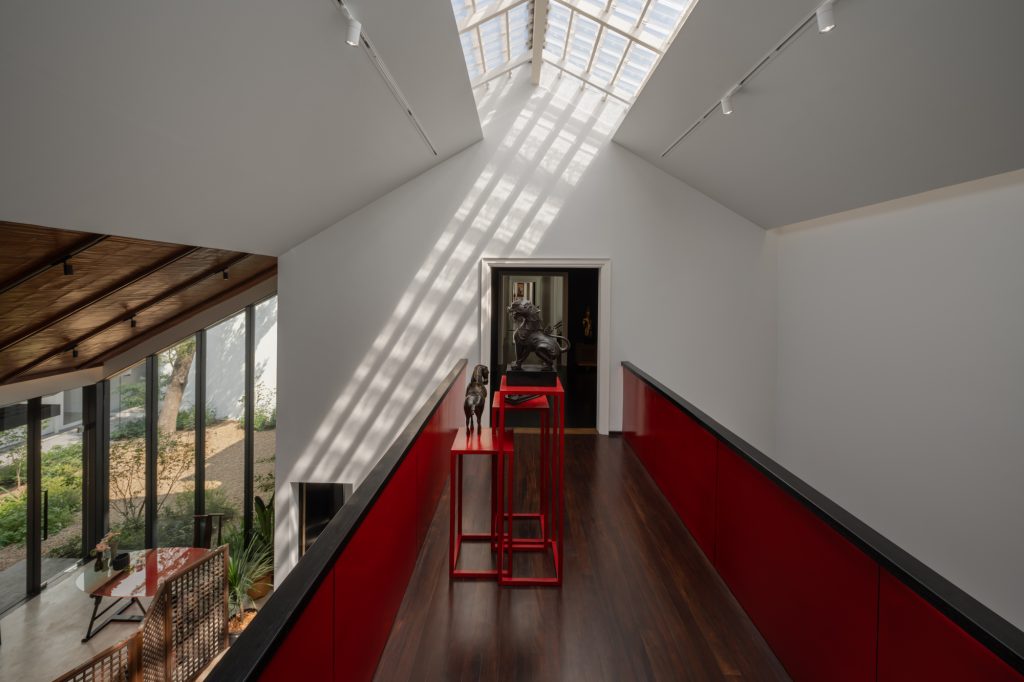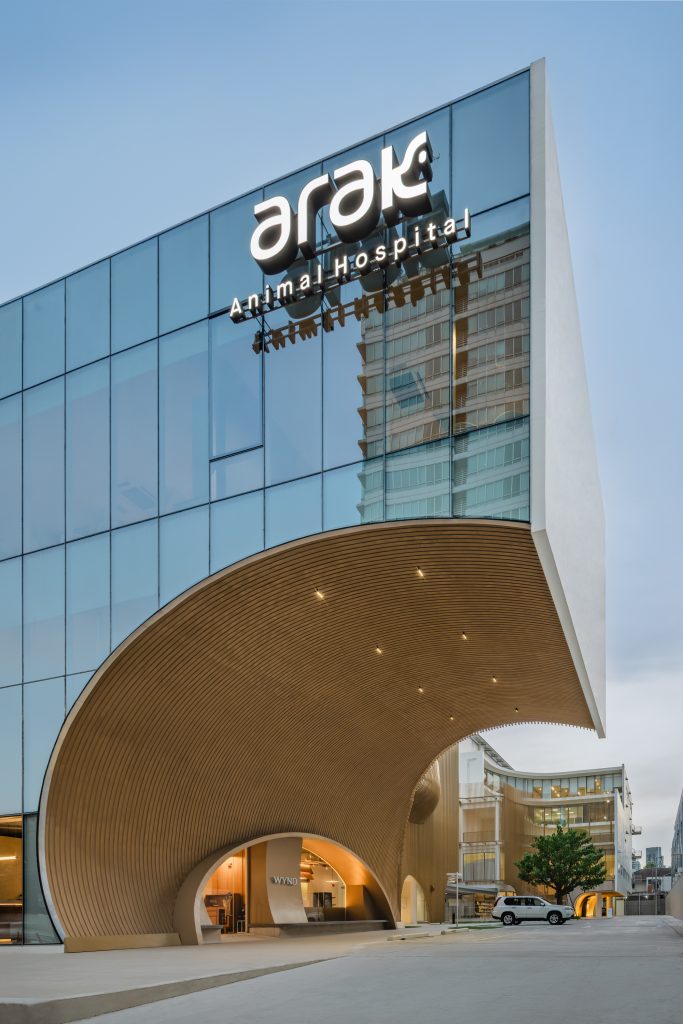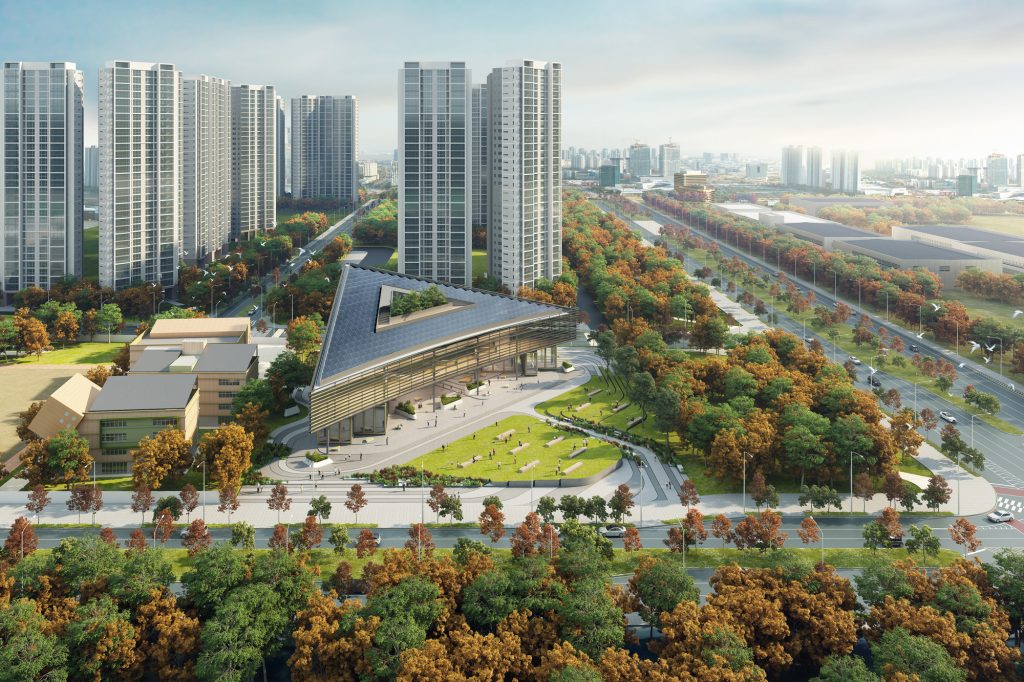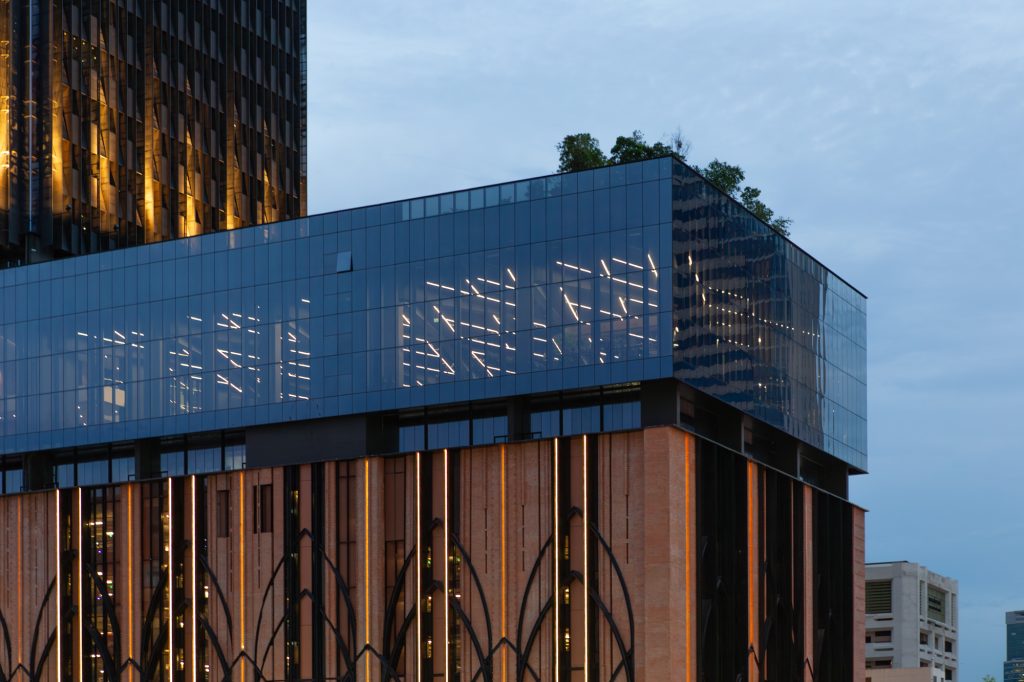Cuchi Organic Farm Cuchi Organic Farm Cuchi Organic Farm Cuchi Organic Farm Cuchi Organic Farm Cuchi Organic Farm
How can we trust our food?
Since the Vietnam War ended in the late 1970s, the country quickly joined the global capitalism movement. Dramatic urbanization and economic growth led to an overcapacity expansion in the food industry. Today, awareness of the food crisis has controversially emerged within Vietnamese society.
The Cuchi Organic Farming Masterplan is a design proposal for a 600-hectare decommissioned rubber plantation in Cuchi, Vietnam. The client acquired the land with the aim of transforming the underutilized site into an organic food production farm, focusing on animal feed, livestock, fruit, and vegetation in a closed-cycle operation. The first phase of 50 hectares is dedicated to agro-tourism, offering visitors a holistic experience of the food cycle.
The first question that arose at the very beginning of the project was: How can we earn trust from consumers? To answer this question, we propose an experience of the organic food cycle through a journey on the farm. The relationship between animals and plants is boldly emphasized, from agricultural requirements to the visitor route and activities.
At the intersections of different farming zones, we define learning nodes, such as the Agro-forestry node, Food cycle node, and Livestock node. The visitor route is designed to pass each node as a learning spot, summarizing the main idea of each area. Visitors can further explore each farming area and engage in activities like grow & harvest classes or learn how to produce organic fertilizer. These learning nodes are key to understanding how organic processes work in reality, offering visitors empirical knowledge about food production. Ultimately, this understanding builds trust in the sincerity of the farm.
The project also includes facilities such as farm-stay accommodations, a farm-to-table restaurant, a farmers’ market, and co-farming areas where individuals can rent specific plots of land to farm their own orders. Existing rubber trees are selectively preserved as windbreakers to filter air contamination, with nearly 80 percent of the trees remaining in the tourist and accommodation areas.
The Agroforestry node, located at the intersection of three different types of plants, showcases the ecosystem among fruit trees, shrubs, vegetables, and herbs. The goal is to show visitors how these plants naturally support each other in a balanced environment.
The core idea of the organic approach is visualized in the water reservoir area, where planting and livestock meet. The food cycle walkway offers visitors a realization of how food is produced from the water supply as the beginning of life—corn and grass that feed the livestock—then the animal manure is fermented and used as fertilizer for plants. Some plants are then sent to a processing warehouse, while others are used as animal food, completing an organic loop.
The livestock node, on the other hand, shows visitors how water creatures and animals can coexist in the local wisdom way.
Location
Ho Chi Mihn City, Vietnam
Design Date2017
ArchitectIF (Integrated Field)
Landscape ArchitectIF (Integrated Field)
Na Laan Studio
Awards
-
WAF Awards - WAFX Prize Winner (2018)WAFX - Food
-
WAF Awards - Finalist (2018)Masterplanning - Future Project
